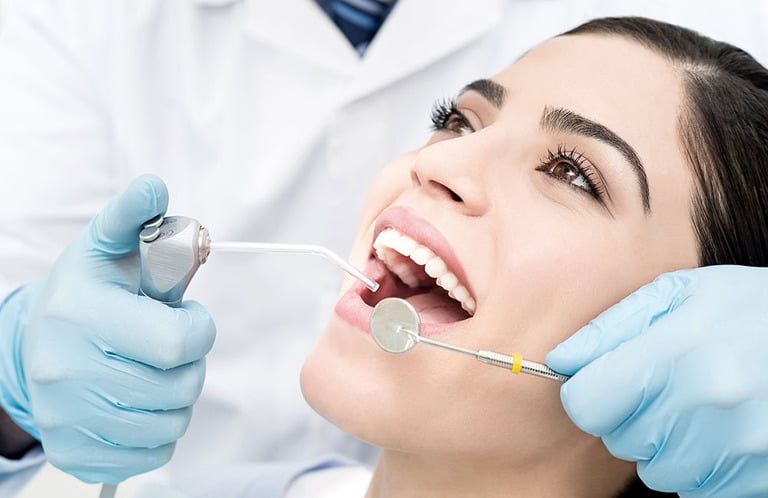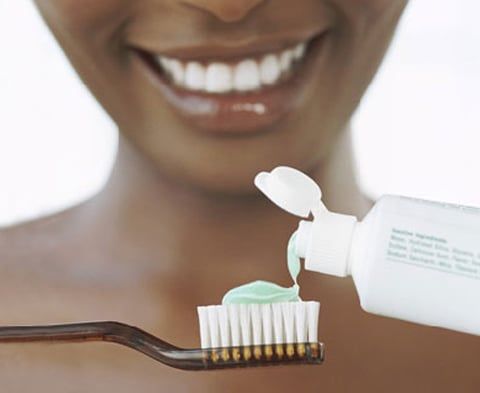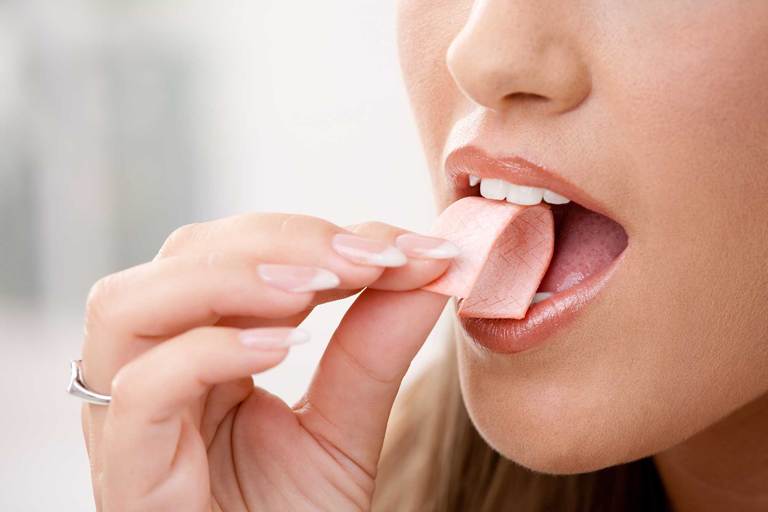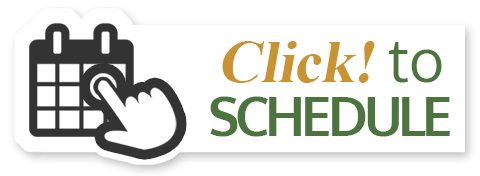Oral Hygiene Tips
How often should I get dental checkups?
For most people, a checkup and cleaning every 6 months is standard protocol. Depending on a person's dental health, however, a dental cleaning every 3 to 4 months may be recommended.

What is the best kind of toothbrush?
Generally speaking, a soft bristled toothbrush is best. Whether you use a manual toothbrush or an electric, anything harder than soft, is too hard. Stiff bristles may give you that clean feeling, but they can also abrade your teeth and cause gum recession.

Brushing
Step 1 - Place bristles along the gum line at a 45 degree angle. Gently brush using a circular motion along the outer and inner tooth surfaces.
Step 2 - Brush each tooth individually. Tilt brush vertically behind the front teeth. Using the front half of the brush, use the same circular motion.
Step 3 - Place the brush against the biting surface of the teeth and use a gentle back-and-forth motion. Brush the tongue to remove odor-producing bacteria.
Flossing
Flossing removes bits of food and any plaque build-up that is caught or stuck in the tight spaces between teeth and just below the gumline where a toothbrush cannot easily reach. Proper daily flossing combined with regular brushing is one of the easiest things you can do to prevent cavities and gum disease.
Floss is cheap, so don't be stingy. Wind about 18 inches of floss evenly around each of your middle fingers until one to two inches of floss is left between the two finders. Using your thumbs and index fingers, firmly grip the floss and slide the floss between your teeth. Curve the floss around the base of your tooth while using a gentle up-and-down motion, remove food particles and any plaque build-up between the two teeth. Take special note to make sure the floss reaches just below the gumline to ensure proper and thorough cleaning.
Repeat this step for all of your teeth and unwind a clean section of floss between your fingers as you move between teeth.
NEVER "saw" at your gums with dental floss or force the floss between teeth as this can damage gum tissue and be extremely painful.
Chewing Gum
Chewing gum naturally triggers your saliva glands to produce extra saliva. Saliva is your mouth's best natural defense against plaque build-up because it acts as a barrier over the surfaces of your teeth to make it more difficult for plaque to start forming and actually contains enzymes that can break down food particles in your mouth. If you choose to chew gum, it is recommended to chew a sugar-free gum to help prevent cavities.

Bad Breath
What you eat affects the air you exhale. Certain foods, such as garlic and onions, contribute to objectionable breath odor. Once the food is absorbed into the bloodstream, it is transferred to the lungs, where it is expelled. The odors will continue until the body eliminates the food. People who diet may develop unpleasant breath from infrequent eating. If you don't brush and floss daily, particles of food remain in the mouth, collecting bacteria, which can cause bad breath. Food that collects between the teeth, on the tongue and around the gums can rot, leaving an unpleasant odor. Dry mouth occurs when the flow of saliva decreases. Saliva is necessary to cleanse the mouth and remove particles that may cause odor. Dry mouth may be caused by various medications, salivary gland problems or continuously breathing through the mouth. Tobacco products cause bad breath, so if you use tobacco, ask your dentist for tips on kicking the habit. Bad breath may also be the sign of a medical disorder, such as a local infection in the respiratory tract, chronic sinusitis, postnasal drip, chronic bronchitis, diabetes, gastrointestinal disturbance, liver or kidney ailment.

Schedule An Appointment
Life Smiles Dental Care would love to meet you and your family and provide you with the dental care you need and give you all smiles you deserve!



